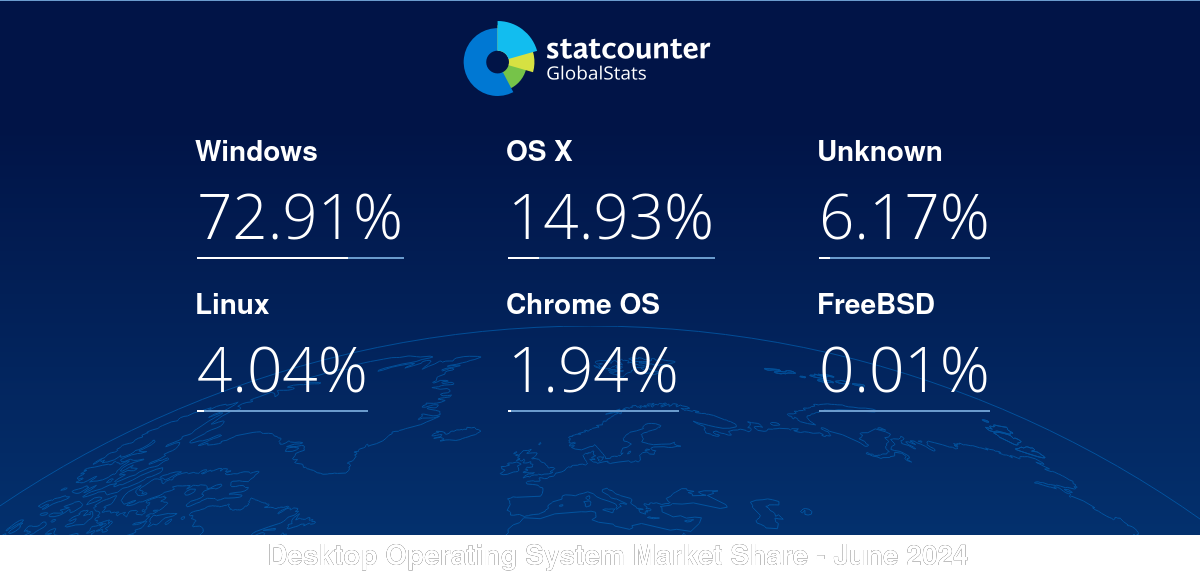It peaked at 4.05% in March. The last 2 months it went just below 4% as the Unknown category increased. For June the reverse happened, so 4.04% seems to be the real current share of Linux on Desktop as desktop clients were read properly/werent spoofed.
Mint is great and is absolutely enough for most people using computers, still as of now. It comes with its limitations though:
- By default it runs pretty old kernel. This is fine if your hardware is at least 3 years old. It allows to easily switch to newer kernel with just few clicks, but I expect newbies to not be aware of this at all. Oh, and I don’t know if it offers some custom kernels like tkg etc, which some might want to squeeze best gaming perf etc.
- Cinnamon is still limited to X11. If you have multi-screen setup, VRR, mixed refresh, mixed DPI etc, it’s better to switch to Wayland. Plus, Xorg server gets less and less maintenance and development. All the innovation moved to Wayland, so the experience on X will remain pretty stale.
- The Ubuntu base makes it so that for 3rd party software you either need deb packages or PPAs. Some will argue (me included) that it’s not the best solution
All of the above can easily be irrelevant to you and Mint is just perfect for what you need. It’s important to point out limitations of that choice, but crapping on it because you don’t like it is just pointless fuss
On your last point, there’s also Flatpak which is available right from the baked in software center… That’s not without its issues too, but they’ve been an overall smooth experience for me so far
Yes, Flatpak fixed a lot of the old shenanigans we used to have when everything was either native package, or a binary to hope for the best and install libraries manually, or source code to collect everything that’s needed for building and again, hope for the best. It is however designed to provide a way to install graphical apps, but can’t handle everything native package does (like out-of-tree kernel modules, CLI utils, system services)
I believe it can do CLI, but that’s not always been the case and not a lot of CLI apps adopted it as a result
But for most of what the typical user, or even a lot of what a technical user, needs, it does a good job
Cinnamon can run Wayland in experimental mode. It’s just an extra click during login. Mint also has direct support for flatpaks repositories, with flathub by default directly on the software center.
Any experience you can share on how complete and stable is that experimental session? I probably wouldn’t throw newbie on that
There’s a bug where flatpaks seemingly disappear from the system the first time you run Wayland. But it resolves with a reboot. It happens too if you change back from Wayland to X11. Other than some minor glitches from very old software that hasn’t seen an update in decades, it runs perfectly fine.


